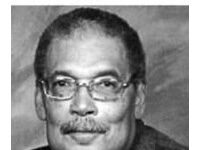 Many reports have documented the low graduation rates at many of the nation’s historically Black colleges and universities. (See, for example, this JBHE post.)
Many reports have documented the low graduation rates at many of the nation’s historically Black colleges and universities. (See, for example, this JBHE post.)
A new report from the American Council on Education shows that the methodology used by the U.S. Department of Education to compute the graduation rate at HBCUs paints an unfair picture of the performance of these educational institutions in graduating their students.
The official federal graduation for all state-operated HBCUs is 34 percent. This means that just over a third of all entering students at HBCUs earn their degree from the same institution within six years. But the new report notes that using data from the National Student Clearinghouse, the actual graduation rate for students at public HBCUs is 43 percent. And furthermore, if we look only at full-time students, the graduation rate rises to 62 percent.
At private HBCUs, the federal graduation rate is 43.9 percent. But the National Student Clearinghouse data for full-time students shows a graduation rate of 66.7 percent at these institutions.
At predominantly Black institutions that are not classified as HBCUs, the federal graduation rate is 16.6 percent. But the National Student Clearinghouse data suggests a 52 percent completion rate for full-time students at these institutions.
The full 66-page report, Pulling Back the Curtain: Enrollment and Outcomes at Minority-Serving Institutions, may be downloaded here.











